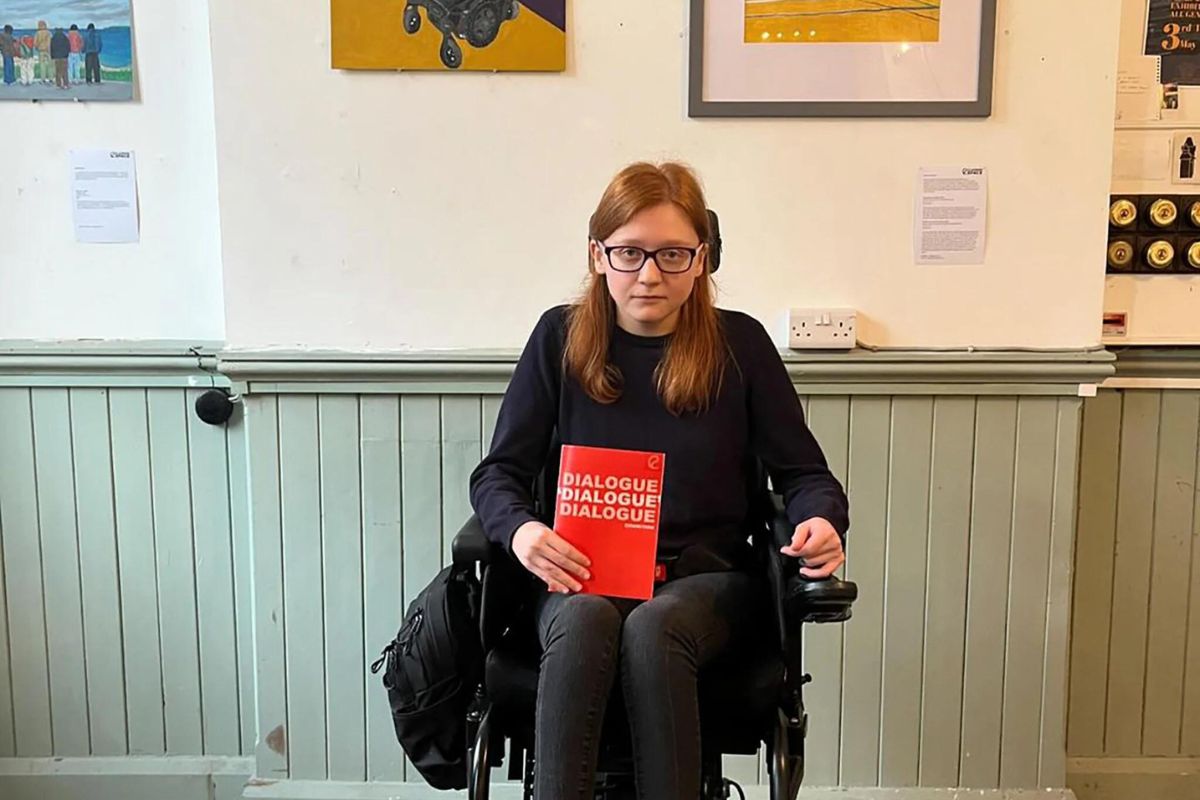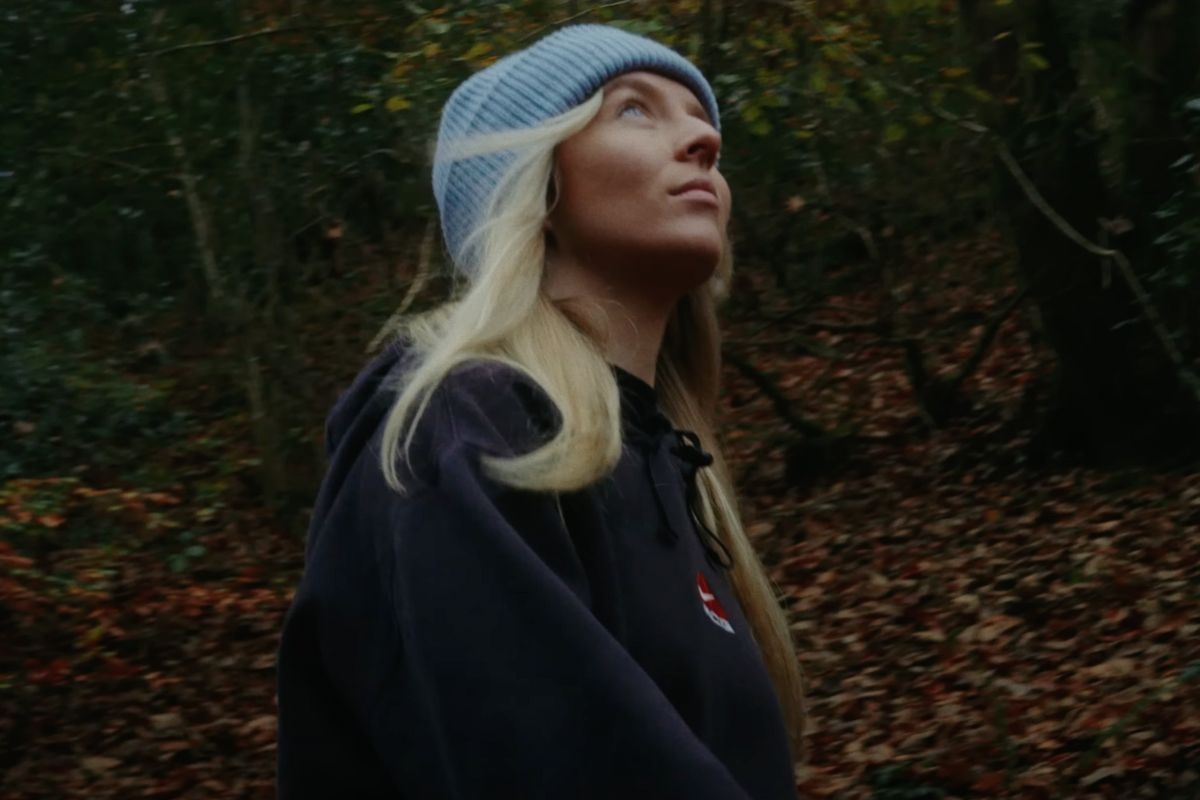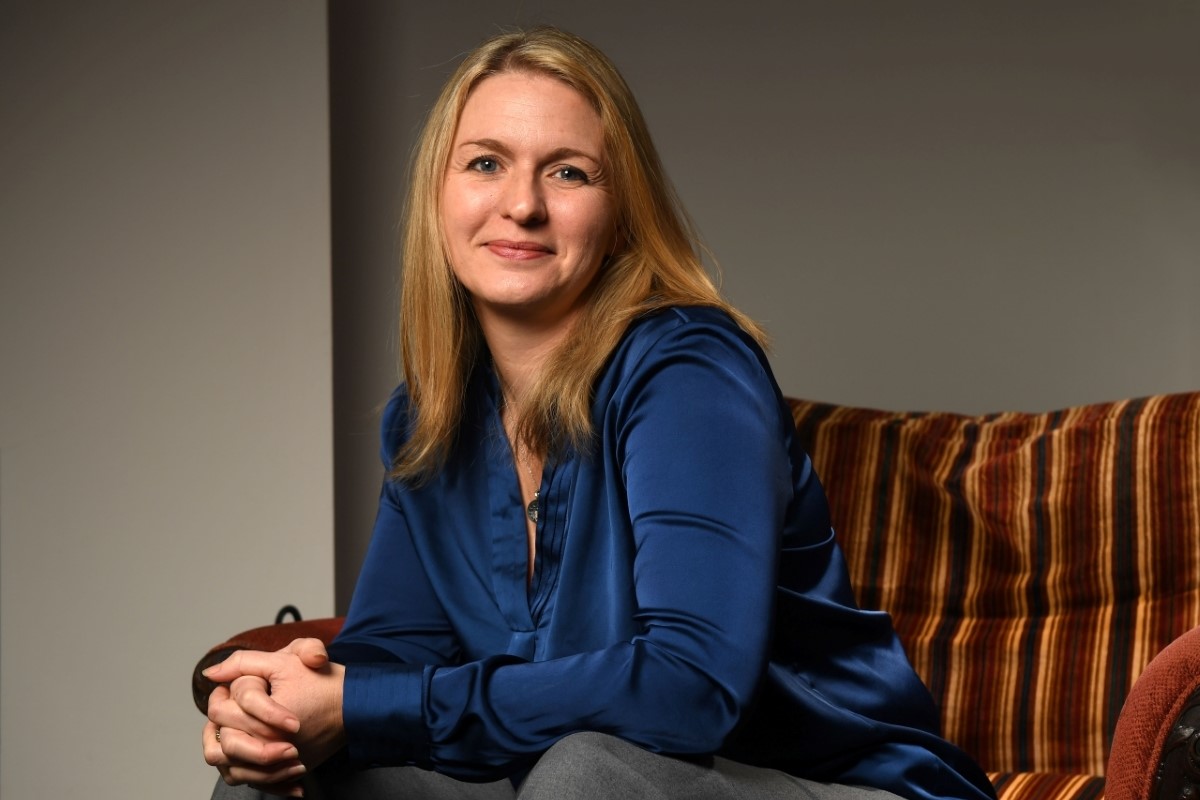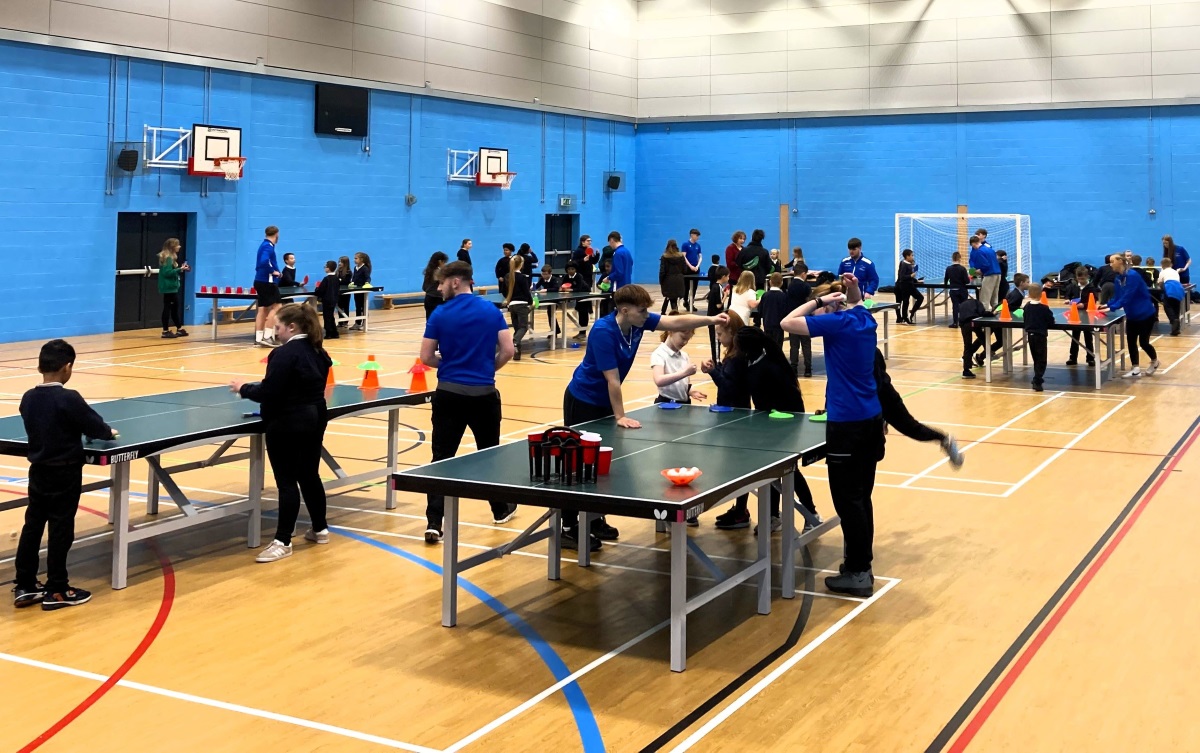Arts University Plymouth crafts innovation with bespoke easel for wheelchair-using student

Arts University Plymouth’s Workshop Coordinator Harrison Newman has developed a bespoke easel for BA (Hons) Painting, Drawing & Printmaking student Amy Lee-Julien. Faced with the challenge of finding a suitable easel for wheelchair user Amy, Harrison developed his own design using the woodworking facilities at the UK’s top rated arts university.
Harrison said, “I was making an easel for myself in the evenings after work and wanted a high end easel with all the features without paying over £2000 for one. I bumped into one of the lecturers and we were chatting about my easel when she mentioned that they were having trouble finding a suitable easel for a student who uses a wheelchair, so I offered to make one. Beyond altruism, this endeavour does hold personal significance. Crafting Amy’s easel allowed me to explore design nuances, test materials and refine my skills. Plus it aligned with my own long-term vision of creating easels that blend craftsmanship, affordability and functionality.”
To start the project, Harrison met with Amy to discuss exactly what she required from the easel. Key questions included how low could she comfortably reach, what her highest comfortable reach was, and how manoeuvrable her wheelchair was around corners.
“Creating an easel that seamlessly integrates with Amy’s wheelchair required thoughtful planning and collaboration. My initial conversation with Amy was crucial. We discussed her artistic preferences, wheelchair dimensions and any specific challenges she faced. We decided on a floor-standing easel for Amy, as it allowed Amy to position the easel wherever she needed without constraints, while providing stability and adjustability. To enhance mobility, we incorporated wheels into the easel’s base meaning Amy can effortlessly move the easel around her studio or workspace. We made sure the palette shelf and other components were within a comfortable reach range.”
“We chose materials that were sturdy and lightweight, using pine and aluminium to maintain durability without unnecessary weight. The finish was essential too, we opted for a smooth, splinter-free surface to prevent any discomfort during touch or movement. Safety was also paramount. The easel’s base had to be wide enough to prevent tipping, especially when Amy leaned forward to paint. Anti-slip features ensured that stability, even on smooth studio floors. Throughout the process, I collaborated closely with Amy. Her feedback guided our decisions, ensuring the easel truly met her needs.”
Designing and building an easel for someone who uses a wheelchair presents unique challenges, since most easels have bars running along the floor, making it difficult for a wheelchair to access the easel comfortably. Since this bar is used to strengthen the easel, Harrison came up with a unique design which allowed for stability without losing accessibility.
Harrison said, “The easel was designed to be used by almost anyone, but takes into account accessibility, which is what I like to do for all the products that I make. I’m currently designing another easel that is a progression from this one, hoping it will make it even easier to use and feature more adjustments. I’ve also been making painting palette tables that can accompany the easel, with adjustable heights and storage for artist materials.”
“In the woodwork department, we embrace an inclusive approach. Any student, after completing the necessary induction and demonstrating safe tool usage, is welcome to create whatever they envision. I actively assist students, irrespective of their skill level or background, in bringing their projects to life. Our commitment lies in ensuring that every student has the opportunity to explore their creativity and achieve their goals.”
Amy said, “Harrison and I had meetings to discuss my needs and what he could potentially make. We emailed each other with ideas and measurements to ensure the new easel worked well for me. I needed to make sure the easel went high enough so that my knees could fit under the edge of the easel, as well as my powerchair being able to fit between the legs of the frame.”
“I often can’t get close enough to regular easels, I catch my legs with my wheels when I try to move or reverse away from the easel. This new easel is solid and robust with the work clamped firmly in place. I’ve found the easel so useful. It’s fully height adjustable, matching my reach and the capabilities of my powerchair. The large castors means I can move it around and the winch handle on the back means it’s easy to adjust to any position I need it.”
“At home, I was working on an A2 landscape desktop easel, which restricted the size of my work. With the new easel, I’m now able to work at a much bigger scale. I’m currently working on three pieces measuring 122cm x 80cm, but the easel can take even bigger pieces than these. The built easel has given me the freedom to work bigger, and in doing so has improved my confidence within my art practice.”
Richard Webb, Course Leader for BA (Hons) Painting, Drawing and Printmaking at Arts University Plymouth said, “The exciting narrative for me as both a practitioner and teacher of painting is in enabling students to find their voice, their content and their song, and to be able to paint inside that. Then from there, to soar on wings of eagles to imagine and create. Each person needs a certain space and place to make their gestures and play with materials to do this. As Amy started her third year and returned to the studio full time, it was clear that she had a bold vision and new ambition. She wanted to make big paintings, but did we have an easel that could work around her power chair? At the same time, I had seen Harrison make his first prototype easel in the workshop to carry large paintings. I suppose the rest is history! Harrison loves having a problem to solve, and he came up with such an incredible solution for Amy. Since then, paintings are rolling off her new easel, and I’d say watch this space for some incredible work at her Graduate Show this June.”
Harrison’s easel is just one aspect of supporting students in inclusivity and diversity throughout the University. In 2023, Arts University Plymouth won a Kindness in Education Award, recognising the arts university’s collective work to build a kinder and more compassionate university and an inclusive community for staff and students.
Arts University Plymouth continues to be recognised for its excellence in creative education, providing a world-class ecosystem of resources and talent for the designers and makers of tomorrow. Arts University Plymouth was crowned the 2024 Winner in South West England for the categories of University of the Year, Facilities, Student Support, and Learning & Teaching Quality.











Responses